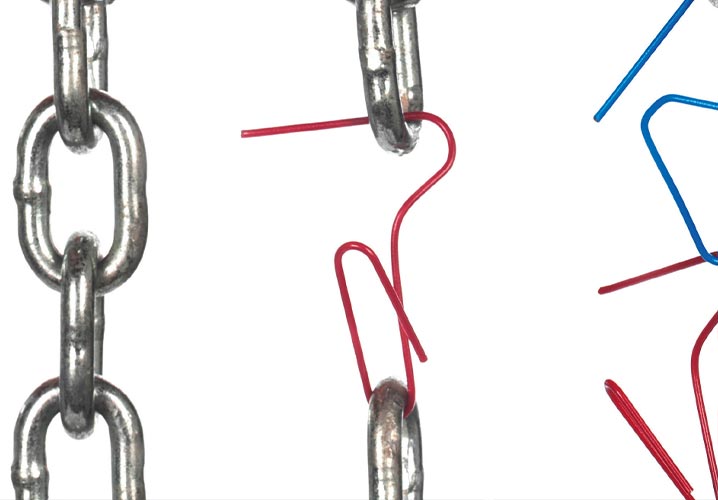
Collaborative Supply Chain Risk Management
The principle of counteracting risks through collaboration is simple and has been around for quite a while. Every insurance scheme is based on the idea that risks are taken collectively to offset potential losses. In supply chain management, collaboration stands for trustworthy cooperation between actors upstream and downstream. Indeed, collaboration is the key for further optimization and efficiency improvements within increasingly integrated material and information flows. Company leaders, academics, and politicians alike thus perceive collaboration to be an important prerequisite for sustainable competitiveness on global markets.
With their refined logistics and production concepts, European companies provide a leading example of successful day-to-day collaboration. Nevertheless, they can still learn a lot from their counterparts when it comes to collaborating with each other in times of crisis. Although business continuity management is also gaining importance in Europe, collaboration and mutual assistance among customers, suppliers, competitors and governments are generally not part of established European response patterns in case of a disruption, such as a production stoppage due to fire, natural disasters, or legal disputes.
Nowadays, if collaboration during crises occurs at all, it is often unplanned and usually based on personal networks. However, examples show that valueadded chains, in particular, can be speedily reactivated through collaboration. In a strongly integrated value-added chain, a longer-lasting disruption may jeopardize the very survival of the upstream and downstream supply chain actors and thereby potentially endanger jobs. With this in mind, the Funk Stiftung supports the present study and focuses on the question of how collaboration needs to be designed when approaching supply chain risks that may threaten a business.
Together with the research workgroup for Production and Logistics Networks at Jacobs University Bremen, we are pleased to address this question, which has remained largely unanswered in research and practice up to now. We hope that this study will provide the reader with new insights into dealing with supply chain risks.
Hendrik F. Löffler, chairman of the Funk Foundation, about the study on collaborative Supply Chain Risk Management.
A free download of this study is possible via our Media Library.

